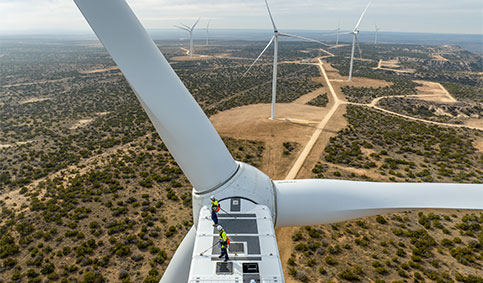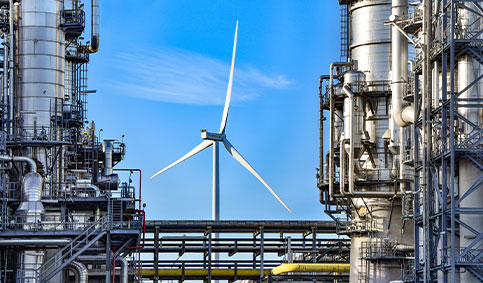Carbon pricing
We believe that putting a price on carbon – whether through cap-and-trade, a carbon tax, or a hybrid system – is a central pillar of any comprehensive net-zero emissions policy framework. A carbon price provides an economic signal to drive changes in the behaviour of consumers, businesses and investors, spurring technological innovation and generating revenues that can be allocated towards the energy transition.
In Brazil, we have advocated the establishment of a national emissions trading system (ETS), which we believe is crucial for helping to achieve Brazil’s net-zero by 2050 target. We believe this would incentivise decarbonisation at the lowest cost and support the long-term development of a global carbon market. We also believe an ETS in Brazil that is linked to the country’s voluntary carbon market could help to further develop Brazil’s carbon market and even enable it to become an exporter of carbon credits. The ETS is awaiting a final review by the Federal Senate, after which it is expected to be written into law.
In the EU, we have supported the EU ETS since it started in 2005. In 2023, the revised EU ETS directive came into force, which is aligned with the EU 2030 climate target that we supported. In our response to the EU’s consultation on a 2040 climate target, we highlighted the ongoing need for carbon pricing to drive investments in low-carbon energy solutions.[1]
In the UK, we responded to the government’s consultation on addressing risks of carbon leakage.[2] We advocated a phased approach to implementing carbon border adjustment mechanisms.[3]
In Australia, we supported the government’s Safeguard Mechanism reforms. The Safeguard Mechanism is the government’s policy for reducing emissions at Australia’s largest industrial facilities. We have provided industry input to a consultation on carbon border adjustment mechanisms based on experiences in the EU.
In India, we were part of the working group led by the International Emissions Trading Association (IETA) that completed a study and report on “Developing an effective carbon market framework towards achievement of net zero in India: The role of Article 6, emissions trading and voluntary markets”.[4] The report, which includes key recommendations to scale up carbon markets in India, was provided to the Indian government and published on IETA’s website.
In China, we support the national ETS. In 2023, we advocated the inclusion of additional sectors in the ETS and for alignment of industry benchmarking methodologies with international approaches. Our advocacy is direct to government and through industry associations such as the British Chamber of Commerce and the China Petroleum and Chemical Industry Federation.
We provide more detail about our advocacy on some of these topics on our website.[5]

[1] www.shell.com/external-redirects/eu-2023-six-shell-submission-eu-2040-climate-target
[2] The UK government defines carbon leakage as “the movement of production and associated emissions from one country to another due to different levels of decarbonisation effort through carbon pricing and climate regulation” (see www.gov.uk/government/consultations/addressing-carbon-leakage-risk-to-support-decarbonisation/outcome/factsheet-uk-carbon-border-adjustment-mechanism).
[4] www.ieta.org/resources/papers/india/
[5] www.shell.com/sustainability/transparency-and-sustainability-reporting/advocacy-and-political-activity/climate-and-energy-transition-advocacy-updates.html. We also provide further information about carbon pricing on our website: www.shell.com/sustainability/transparency-and-sustainability-reporting/advocacy-and-political-activity/carbon-pricing.html









